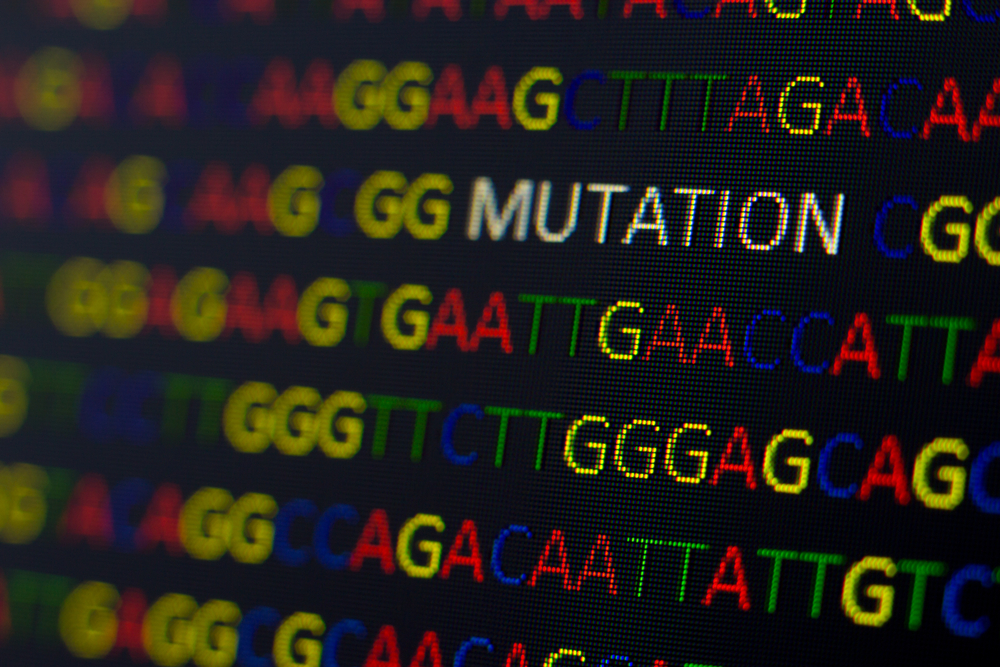ALS-linked Mutations Surprisingly Common in Absence of Family History

A higher than expected proportion of amyotrophic lateral sclerosis (ALS) patients — most without a family history of ALS — had mutations in genes associated with the disease, according to a study in 100 patients in the U.K.
“Our study found that 42 per cent of patients involved in the screening showed variants in known [ALS]-linked genes,” Janine Kirby, PhD, a study author and a professor of neurogenetics at the University of Sheffield, said in a university press release.
While this does not mean that 42% of these ALS cases are inherited, it highlights “that some familial and sporadic cases can share the same genetic cause of disease,” Kirby added.
These findings also suggest that routine genetic testing may be appropriate for all ALS patients, regardless of family history. Information obtained may help to better understand and classify ALS subtypes, and could identify people who might benefit from investigational gene therapies in ongoing clinical trials.
“This is increasingly important in light of the new personalized medicine treatments in development for [ALS] that target a specific gene mutation to ensure that patients have access to potential treatments that could be beneficial to them,” said Pamela Shaw, MD, the study’s senior author.
Shaw is the director of the Sheffield Institute for Translational Neuroscience (SITraN) and of the National Institute for Health Research’s Sheffield Biomedical Research Center.
The study, “Value of systematic genetic screening of patients with amyotrophic lateral sclerosis,” was published in the journal Neurology, Neurosurgery & Psychiatry.
While most ALS cases are considered sporadic, 5–10% have been shown to be familial, or inherited. The genetic cause of approximately 60–70% of familial ALS cases has now been identified.
Most familial ALS-associated mutations are present in four genes — C9ORF72, SOD1, TARDBP, and FUS — but mutations in these genes have also been identified in people with sporadic disease.
“Therefore, it is clear that apparently sporadic cases can also carry potentially [disease-causative] variants in known ALS genes,” the researchers wrote.
Currently, only people with a family history of ALS or dementia, or who experience disease onset at young ages, are routinely offered genetic screening.
Potential therapies are advancing that target specific genetic forms of the disease, however, and this “raises the question as to whether all patients with ALS should be offered genetic screening,” the researchers wrote.
Shaw and her team, along with Kirby and other colleagues in the U.K., evaluated whether routine genetic testing of 44 ALS-relevant genes could have a significant impact on disease subclassification and clinical care. The study was funded by the Motor Neurone Disease Association (MNDA).
Notably, “previous genetic studies of ALS have been largely retrospective and were therefore unable to determine the utility of genetic screening in the clinic,” the researchers wrote. (Retrospective studies are those using existing data, findings like a diagnosis and its reasons that are already part of a person’s medical record.)
Genetic testing was conducted in the first 100 ALS patients (93 with apparently sporadic disease, and seven with familial ALS) recruited to the AMBRoSIA program at Sheffield’s ALS clinic between June 2017 and October 2019. Their mean age was 60.4.
AMBRoSIA (A Multi-Centre Biomarker Research Strategy in ALS) is a longitudinal biosampling program in which newly referred ALS patients are invited to undergo genetic testing and provide several biological samples over time.
Results showed that 42 (42%) patients — 35 with apparently sporadic ALS — carried a mutation in the analyzed ALS-associated genes, a rate that was higher than expected.
Half (21%) of these people had a confirmed or likely disease-causative mutation, of whom 67% had no family history of ALS. Mosts of these cases, 71%, had mutations that met the inclusion criteria for a current ALS gene therapy trial, Kirby noted.
The other half carried a variant of uncertain significance (VUS) in an ALS-associated gene. VUS mean that the functional consequences of the mutation are not clear.
Assessing the disease-causing potential of each VUS will require further research, but comparison with previously described mutations suggested that new likely disease-causative mutations were identified in TARDBP and three other genes, the team wrote.
Notably, 13% of all patients carried more than one mutation (disease-causative or VUS), and they had a significantly earlier disease onset (by four years) than did those with only one mutation.
“We identified a strong correlation between mutation load and age of onset, suggesting that the majority of the VUS may be functionally important,” the researchers wrote.
“Our results indicate that screening of known ALS genes can lead to clinically actionable results in [~, about] 21% of patients, and in a further ~21% of patients a VUS may be discovered with potential clinical implications,” they added.
“As future studies expand the number of verified genetic causes of [ALS], we will continue to see if they are also found in cases without a family history,” Kirby said.
While these findings need to be confirmed in larger patient populations, they strongly suggest that all ALS patients “should, with careful counselling, be offered genetic testing,” Shaw said.
Brian Dickie, PhD, the director of research development at MNDA, said that these findings “will hopefully lead to greater availability of genetic testing to aid earlier diagnosis and more tailored treatments in the future.”
“This study was supported by funds raised through the Ice Bucket Challenge and will be widened to include analysis of additional samples from two other clinics,” Dickie added, noting that “this will provide an even clearer picture of the UK [ALS] genetic landscape.”






